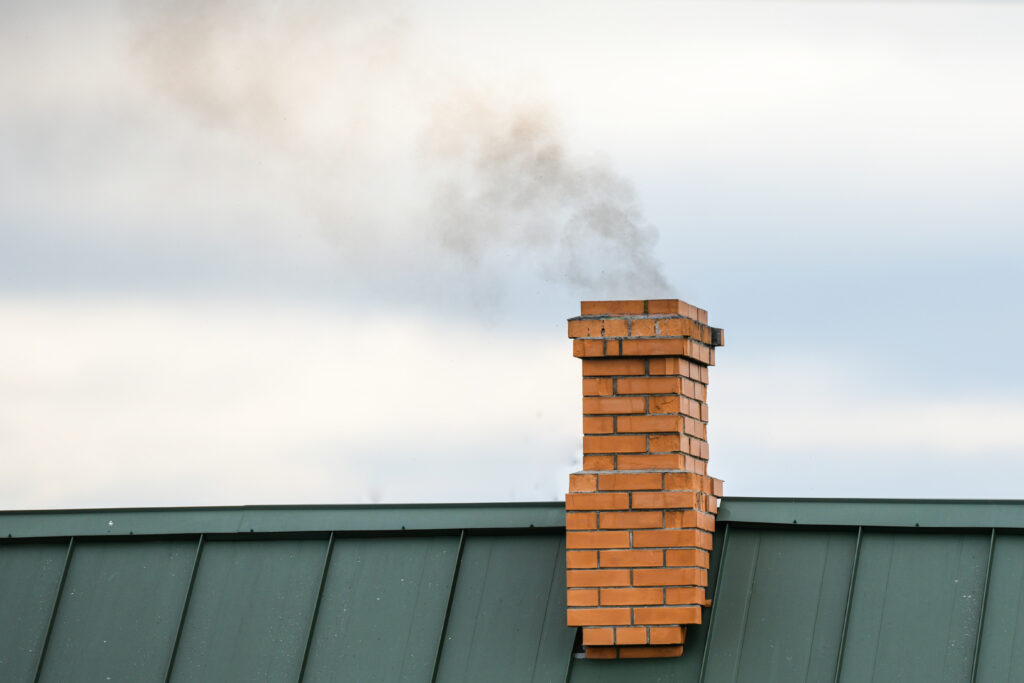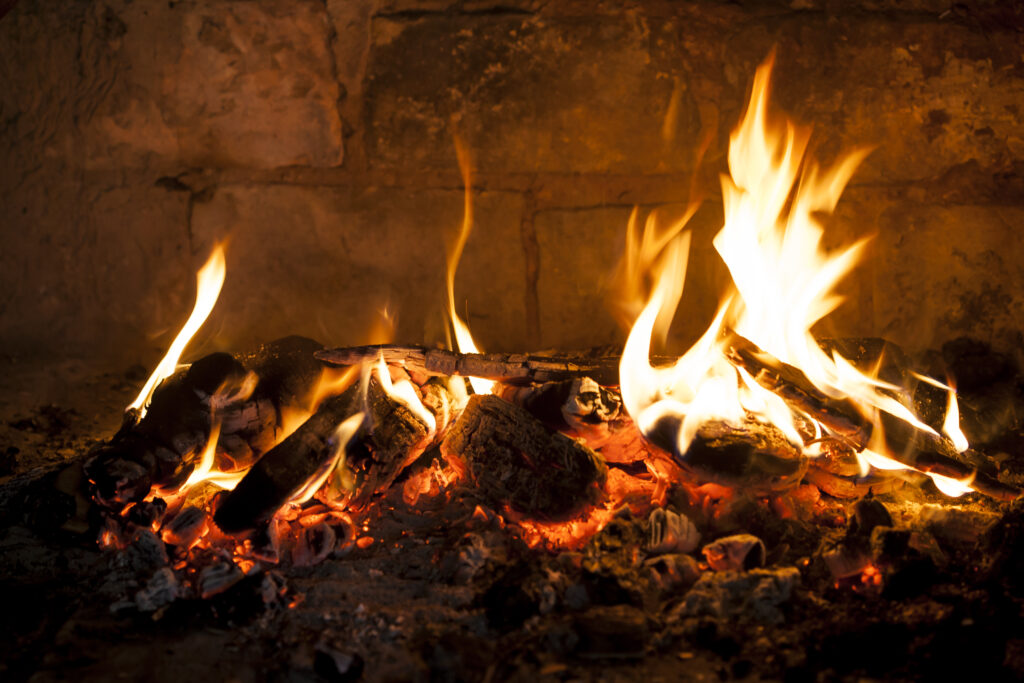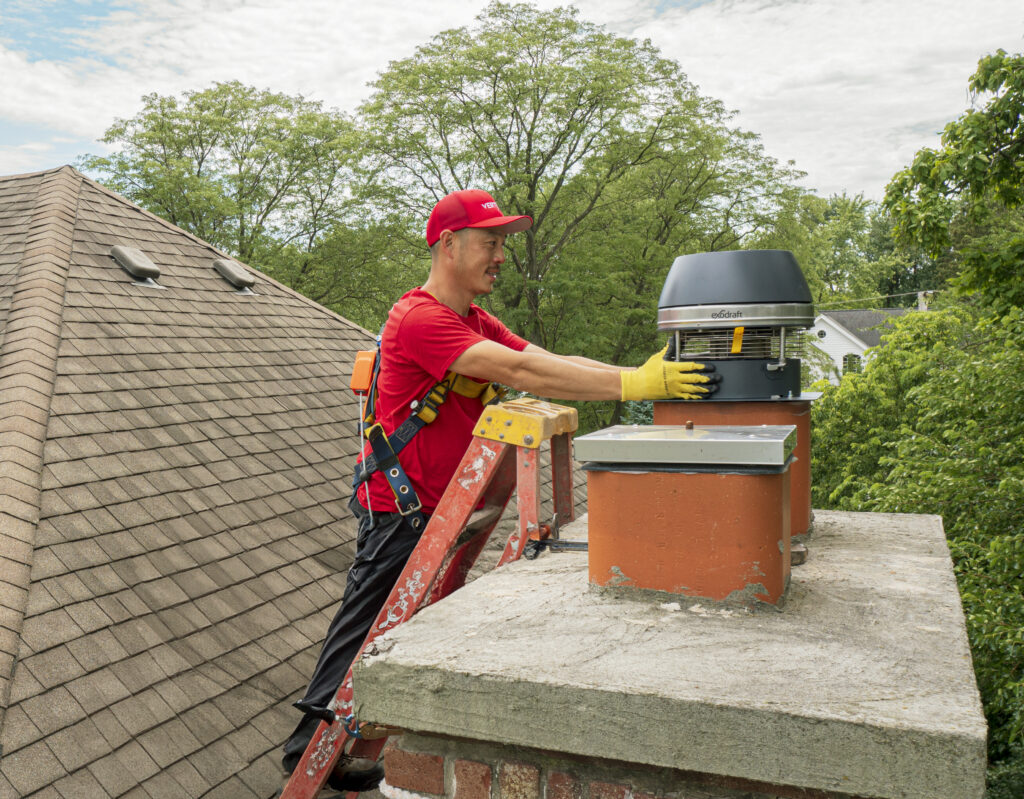
Chimneys have been surrounded by various myths that can lead to misconceptions about their maintenance and safety. Whether you're using a traditional wood stove or exploring modern solutions like electric fireplaces, it's crucial to distinguish fact from fiction. These myths can not only hinder the performance of your chimney but can also impact air quality inside your home. Understanding the truth behind these common chimney myths is vital for ensuring heating efficiency, contributing to renewable energy, and maintaining healthy air pollution levels within your household.
In this article, we will debunk some of the most persistent chimney myths that could be costing you time, money, and peace of mind. We'll also tackle the myths surrounding the types of wood that cause creosote build-up and address the safety concerns related to chimneys and fireplaces. By understanding the importance of regular chimney inspections and chimney maintenance, you'll be better equipped to ensure your chimney's optimal performance and safety.
Myth 1: You Don’t Need to Inspect a Chimney if You Don’t Use It
It's a common misconception that chimneys not in use don't require inspection, however even unused chimneys can become compromised. Over time, structural issues such as cracks or blockages may develop, which are not visible without a proper inspection. These defects can lead to serious problems like water leakage into your home, which can cause extensive damage to walls and ceilings.
Moreover, chimneys serve as a potential entry point for pests such as birds, squirrels, or raccoons, which can build nests and block the chimney. This poses significant health and fire risks. Regular inspections ensure that any such issues are identified and addressed promptly.
Therefore, irrespective of how frequently your chimney is used, annual inspections are crucial. They help in preventing unexpected repairs, ensuring that your chimney remains in good condition, safeguarding your home against potential hazards.
Myth 2: Home Remedies Can Clean Your Chimney Effectively
Attempting to clean your chimney with home remedies not only falls short of professional standards but also poses serious risks. One significant danger is the blockage that can lead to carbon monoxide buildup. Without proper ventilation, this lethal gas can accumulate, putting you and your family at risk of poisoning. Moreover, climbing onto your roof to access the chimney can result in falls and severe injuries, emphasizing the need for professional equipment and training.
Home remedies, such as using chimney cleaning logs, might seem cost-effective but are largely ineffective against hardened creosote, which is a major fire hazard. These logs can only address fresh, flaky creosote deposits and fail to remove the more dangerous, tar-like buildup. Additionally, DIY methods often leave behind soot and creosote, which can corrode chimney walls, leading to inefficiency and the need for costly repairs.
Professionals use specialized tools and possess a deep understanding of chimney systems, allowing them to identify and address hidden issues like structural weaknesses and blockages. They also offer valuable maintenance advice to ensure your chimney functions safely and efficiently. Hence, engaging professional chimney sweep services is essential for thorough cleaning and inspection.
Myth 3: Only Pine and Soft Woods Create Creosote
Contrary to popular belief, the type of wood burned—be it pine or other soft woods—is not the primary factor in creosote accumulation within your chimney. Research, including studies by the University of Georgia, reveals that creosote buildup is more closely linked to the temperature at which wood burns rather than its resin content. Low-temperature fires, regardless of the wood type, tend to produce more creosote.
This misconception often leads homeowners to avoid certain woods like pine due to its higher sap content, however the key to minimizing creosote is ensuring it is dry and well-seasoned. Wood that is properly dried for about a year burns at a higher temperature, which significantly reduces creosote formation. Always prioritize using dry, seasoned wood for your fires to enhance safety and efficiency.

Myth 4: Chimneys and Fireplaces Aren’t Safe
Challenging the notion that chimneys and fireplaces are inherently unsafe, it's crucial to understand that most safety issues stem from neglect rather than design. Common problems such as worn-out masonry or liners, animal nests, and trapped water can all compromise a chimney's safety. Regular inspections and cleaning are essential to prevent these issues and ensure the chimney operates safely and efficiently.
Moreover, attempting to clean your chimney without professional help can lead to numerous dangers. Professional sweeps are equipped to handle creosote buildup safely, inspect for structural damages, and address any blockages or hazards.
It is also a misconception that chimneys only need attention when actively used. Even inactive chimneys can house animal activity or deteriorate from water exposure. Ultimately, the safety of your chimney and fireplace heavily relies on regular maintenance and professional care.
Chimney Myths Busted
Throughout this article, we've debunked prevalent myths about chimneys, emphasizing the critical importance of regular inspections and professional maintenance. The significance of relying on professionals to clean and inspect chimneys cannot be overstated, as this ensures the safety, efficiency, and longevity of your home's heating system. By understanding that both the choice of wood and the maintenance frequency impact your chimney's performance and safety, homeowners can make informed decisions.
Recognizing the need for expert chimney care, we encourage homeowners to take proactive steps toward maintaining their chimneys by seeking professional assistance. Taking action now can prevent potential hazards and save on costly repairs in the future. Remember, the well-being of your home and the safety of its occupants depend on the regular upkeep of your heating systems. To safeguard the efficiency and safety of your chimney, schedule an appointment today!
